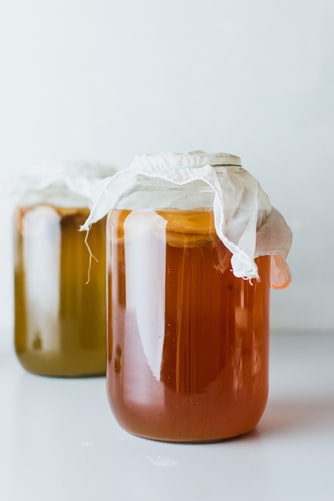Our immune system has one vitally important function – it protects the body against diseases. Although the ongoing pandemic is relatively contained, as today you can get a COVID-19 testing kit at an affordable price, taking care of your immunity is still crucial. And summer is one of the most rewarding seasons to do so! In this article, we will concentrate on supporting your immune system by enriching your diet.
6 Diet Tips to Boost Your Immunity This Summer
Below, you will find six nutritional tips, ranging from including colorful fruits and vegetables, adding probiotics, and staying hydrated to consuming foods rich in vitamins D, C, E, and folic acid and avoiding foods that suppress the immune system. Read on and stay healthy!

Source
Eat Colorful Fruits and Vegetables
What is the most significant thing that your immune system needs? Vitamins, minerals, and antioxidants! These nutrients are responsible for removing free radicals from the body, which fight against cancer cells and prevent mutations.
Antioxidants are important because they neutralize free radicals and prevent oxidative stress, which significantly speeds up the aging process. In addition, your immune system works better if you don’t allow free radicals to damage your DNA.
Make sure to include the following colorful fruits and vegetables in your diet, as they contain the highest concentration of antioxidants:
- red bell peppers
- red cabbage
- cauliflower
- papaya
- pomegranate
- raspberries
- blueberries
- acai berries
- blackberries
- cranberries
- goji berries
- oranges
- strawberries
Include Probiotics
Your digestive health has a massive impact on your immune system. The microbiota, which is made up of “good” bacteria, helps maintain your immune response. When you have a good balance of microflora, your gut produces metabolites such as short-chain fatty acids that have a beneficial effect on gut barrier integrity, metabolism, energy balance, and inflammation.
On the other hand, it will help you fight against viruses, bacteria, and fungi. Furthermore, probiotics are associated with maintaining a healthy gut microbiome. They will also boost your immune system by reducing the symptoms of inflammatory bowel disease (IBD).
Studies show that people who regularly consume probiotic-rich foods have a lower risk of developing IBD. Probiotics also help boost immunity by limiting the growth of harmful bacteria and providing an extra layer of protection against digestive disorders. As an example, here are a few probiotic-rich foods you should include in your diet:

Source
- yogurt (unsweetened)
- kefir (unsweetened)
- tempeh (raw soybean cake)
- kimchi (raw fermented cabbage)
- miso (fermented soybean paste)
- kombucha (fermented tea)
- pickled vegetables
Get Enough Vitamin D
The sun is the most powerful source of vitamin D, and the human body can synthesize it when exposed to a good dose of sunlight. However, many people are deficient in this essential vitamin, which causes low immunity and increases the risk of developing numerous diseases.
Vitamin D does its job by promoting the growth and differentiation of white blood cells, protecting them from oxidative stress, and boosting their ability to destroy mutated cells. It also boosts your immune system by helping your body fight against viruses, bacteria, fungi, and cancer cells. Here are some recommended sources of vitamin D:

Source
- cod liver oil
- fish oil
- Reishi mushroom
- spirulina algae
- chicken eggs
- ghee butter
- macadamia nuts
- dairy products
Add Foods Rich in Vitamin C and Folic Acid
Vitamins C and folic acid have a critical role in fighting viral infections as they boost the production of white blood cells. In addition to that, they help prevent the development of bacterial infections and improve the function of phagocytes. Here are some foods you should include in your diet:

Source
- citrus fruits (oranges, lemons, grapefruits)
- guavas
- cherries
- kiwis
- broccoli
- brussels sprouts
- tomatoes
- potatoes
- kale
Stay Hydrated
Your immune system needs water to stay healthy. Water is an essential nutrient that helps your body maintain a good balance of fluids, remove toxins, and prevent constipation. Water also helps your body fight against germs by diluting the acid that results from infections and neutralizing pathogens.
To stay hydrated, drink plenty of water during the day. Avoid alcohol and caffeinated drinks whenever possible, as they dehydrate your body. Also, make sure you consume enough raw and cooked vegetables and fruits, as they will provide you with enough water as well – green leafy vegetables contain the highest percentage of water (90-95%).
Avoid Foods That Suppress the Immune System
While eating healthy foods boosts your immune system, consuming some foods can suppress its functions. For example, processed foods contain little or no vitamins and minerals, so they don’t help your immune system at all. Moreover, processed foods are loaded with sugar and trans fats, which negatively affect your immunity by increasing inflammation in the body.
Here are some harmful foods you should avoid if you want to keep your gut healthy:
- Refined sugar. It increases inflammation in the body and interferes with the proper functioning of the immune system. As a result, it makes your body more vulnerable to disease attacks. Sugar also promotes oxidative stress and damages your DNA.
- Alcohol. Alcohol not only dehydrates your body but also suppresses the immune system by damaging white blood cells in your gut.
- Trans fats. Trans fats cause a lot of harm to your body by lowering immunity and promoting inflammation. In addition, they increase the risk of developing cardiovascular diseases, diabetes, cancer, arthritis, and Alzheimer’s disease.
- Refined grains. Refined grains are notorious for causing inflammation in the gut. For this reason, people who consume a lot of refined grains may suffer from digestive disorders, such as leaky gut syndrome and inflammatory bowel disease. The consumption of refined grains is also associated with a higher risk of cardiovascular diseases.
- Sugar-sweetened beverages. Drinking soda or other sugary drinks can lead to weight gain and increase your risk of developing type 2 diabetes. In addition, sugar-sweetened drinks contain a high amount of fructose that can cause an inflammatory response in the body.
- Processed meats. Processed meats are loaded with harmful nitrates and carcinogenic preservatives. They are associated with an increased risk of developing Alzheimer’s disease, colon cancer, prostate cancer, and cardiovascular disease.
Conclusion
In this article, we’ve shared several nutritional tips that will help you maintain a healthy immune system. We’ve focused on the importance of consuming a balanced diet rich in colorful fruits and vegetables, probiotics, vitamin D, vitamin C, folic acid, and staying hydrated. We’ve also touched upon the harmful foods that suppress the immune system, as well as processed foods and refined grains that promote inflammation.
If you want to maintain a strong immune system, be careful about what you eat. Don’t forget that your gut is an essential part of your immune system! In order to help your gut be healthy, make sure you eat plenty of fibrous vegetables and greens and avoid eating processed foods as much as possible.